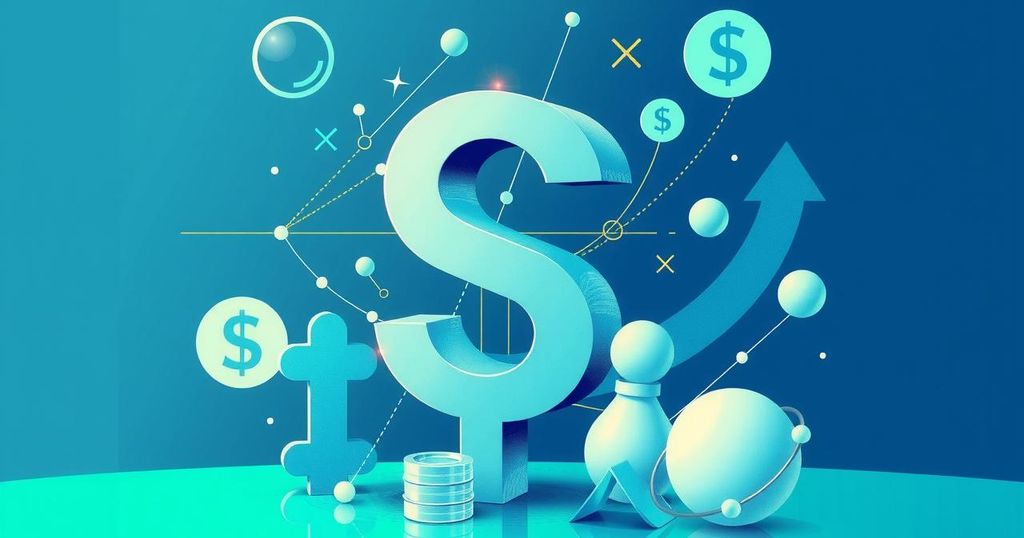The Federal Government of Nigeria is set to repay a $500 million loan from the International Development Association from 2029 to 2054 to enhance primary healthcare services. The loan aims at improving maternal and child health, emergency care, and pandemic preparedness. It involves state governments and will follow a performance indicators-based disbursement structure. However, concerns about Nigeria’s rising debt and the depreciation of the naira remain significant. The World Bank may approve additional loans to support Nigeria’s economic challenges.
The Federal Government of Nigeria is set to commence repayment of a $500 million concessional loan from the International Development Association starting in 2029, with repayments extending until 2054. This financing agreement was confirmed through documentation received by Sunday PUNCH.
The loan, designed under the Nigeria Primary Healthcare Provision Strengthening Programme—also known as HOPE-PHC—aims to enhance primary healthcare services nationwide, with an emphasis on maternal and child health care, emergency medical services, and preparedness for pandemics. The Federal Ministry of Health and Social Welfare will oversee fund management, collaborating with agencies such as the National Primary Healthcare Development Agency and the Nigeria Centre for Disease Control and Prevention.
Implementation will also involve state governments through their respective Ministries of Health and Primary Healthcare Development Boards. Loan repayments will occur biannually, with due dates on April 15 and October 15. For two decades, from 2029 to 2049, Nigeria will repay the principal at an annual rate of 1.65%, increasing to 3.40% from 2049 to 2054. Additional charges include a commitment fee of 0.5% on unutilized funds and a service fee of 0.75% on drawn amounts. The total repayment may vary due to currency fluctuations.
Disbursement of funds will hinge on measurable healthcare performance indicators, which include expanding access to primary services, improving emergency care capabilities, ensuring essential medicine availability, and upgrading Nigeria’s pandemic response infrastructure. A significant allocation will focus on advancing digital health frameworks, enhancing climate resilience in health services, and boosting enrollment of marginalized groups in health insurance.
Concerns arise regarding Nigeria’s surging external debt and escalating debt servicing commitments, especially in light of the naira’s depreciation, which may amplify repayment costs in local currency over the loan’s extended term. The loan was sanctioned on September 26, 2024, with operations expected to commence in fiscal year 2025 and a projected closure date of June 30, 2029, allowing approximately four years for program implementation unless there are extensions.
Nonetheless, Nigeria will undertake a 25-year repayment journey from 2029 to 2054. The PUNCH previously noted that the World Bank might approve an additional $1.13 billion in loans for Nigeria by March 2025 to bolster economic resilience, health security, and educational reforms.
Three key projects are being negotiated: the Accelerating Nutrition Results in Nigeria 2.0 programme, valued at $80 million, aims to enhance nutrition among at-risk populations; the Community Action for Resilience and Economic Stimulus Programme, set at $500 million, focuses on economic initiatives for community development; and the HOPE for Quality Basic Education for All programme, with a proposed funding of $552.2 million, intends to enhance educational quality by improving infrastructure, teacher training, and accessibility.
These prospective approvals come while Nigeria faces economic hurdles, such as constraints on foreign exchange liquidity, fiscal deficits, and increasing debt obligations. Data from the Central Bank of Nigeria indicates that the country allocated $5.47 billion for external debt servicing between January 2024 and February 2025, underscoring the escalating strain of debt on national reserves and fiscal health.
In conclusion, Nigeria’s agreement to repay a $500 million concessional loan over 25 years aims to enhance its primary healthcare sector. The structured repayment plan outlines biannual payments and links fund disbursement to specific health performance indicators. While the loan supports key health initiatives, there are rising concerns about the sustainability of Nigeria’s external debt amidst ongoing economic challenges. The additional loans under negotiation could provide further assistance to bolster health security, nutrition, and education in the country.
Original Source: punchng.com






